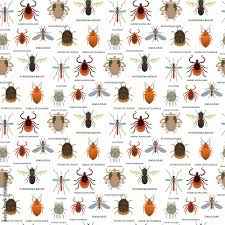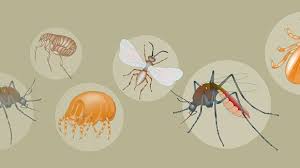In the vast tropical regions characterised by marked dry seasons and periodic droughts, climate is often the most prominent factor influencing animal health. It determines seasonal loss of body conditions, production and periodic starvations in years or times with exceptionally poor rains.
Apart from this, the tropical climate stimulates the proliferation of infectious and parasitic diseases through the recurring provision of a favourable environment for the development, growth and spread of such diseases and their agents. The resulting problems they cause livestock vary between various climatic regions, systems of management and between breeds or populations of animals.
Climatic differences between regions have profound effects. It is obvious that worm eggs survive far better in humid climates than in the deserts, although surprisingly favourable conditions may occur locally around water points in a dry area.
In Africa, tsetse flies thrive in warmer lower regions, while the tick vector of East Coast fewer prefers cooler, higher areas of greater altitude. As a general rule, animal populations tend to be adapted to the local diseases in the area in which they lived many generations, especially as they are kept under traditional, extensive management. Problems tend to crop up or increase, when they are kept in crowded conditions, favourable to intensive disease transmission and to concentrations of helminthes, eggs, coccidia and ectoparasites.
Major climatic effect on animal diseases and parasites arise when European cattle are introduced into the tropics. Quite apart from the tropical climatic stress that further compound the poor health condition, exotic breeds such as dermatophilosis, theileriosis, trypanosomiasis, babesiosis, cocodiosis, tick infestation and a host of other diseases than are populations of local cattle in the areas in which such diseases are endemic.
It is thus clear that co-evolution of host and parasite tend to result in natural selection of greater resistance on the part of the host. Quite often it is not so much a matter of breeds or species, but more of populations locally selected by natural disease pressure.
Read Also: Strategies for Advancing Animal Production
Worm infestations are less spectacular than acute bacterial, viral or protozoan diseases, and their harmful effects, loss of production or sub-optimal performances, are often underestimated. Acute rise in the degree of worm infestation during the rainy season in the tropics has been reported.
The use of existing knowledge on the epidemiology and immunology combined with use of drugs have assisted a great deal to limit infestations to levels where they are harmless or nearly so. Eradication is hardly possible due to major part of the worm population occurring in the environment in form of eggs and larvae.

Ectoparasites infestations apparently take over from the internal parasites as rainfall diminishes into the dry season. Ectoparasites inflict irritation, wounds and abscesses by their biting habit on the host. Thus resulting in painful bites, restlessness, reduced production performance,
damages to hides, loss of blood, teat and part of the udder, causing considerable economic waste.
The conditions further predispose animals to various parasitic and disease attack. Beside climatic conditions that permit the prevalence and proliferation of the ectoparasites, alternative hosts, especially wild beasts and domestic animals, harbor different stages of the biological cycle of the parasites. Certain pocket of micro-environments also provides suitable places for breeding of the ectoparasites, making eradication much more cumbersome where such programme exists.
Read Also: Effects of Altitude and Soil Condition on Animal Production

